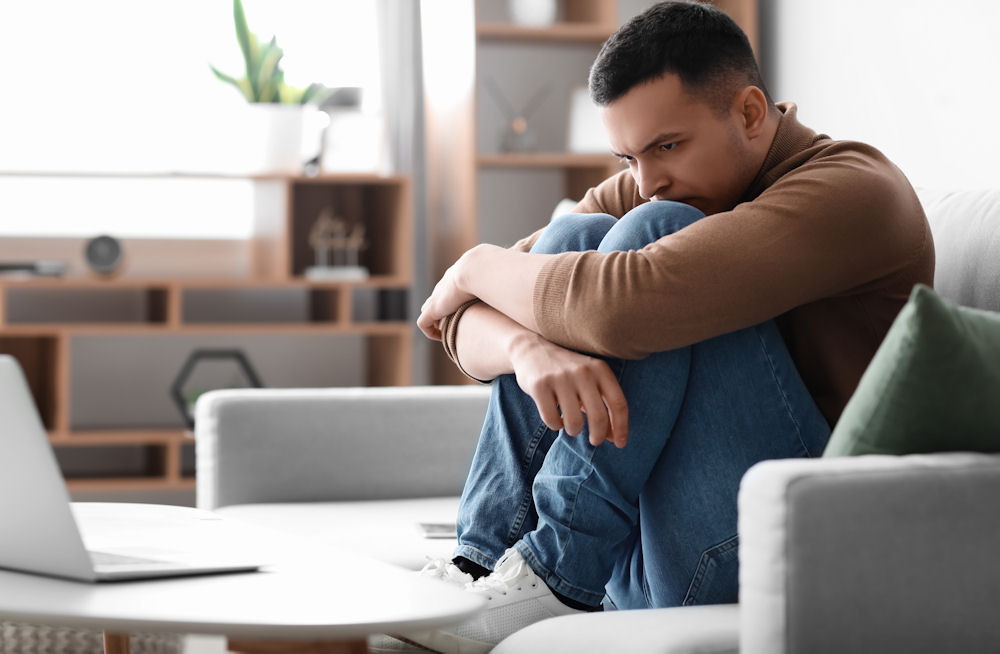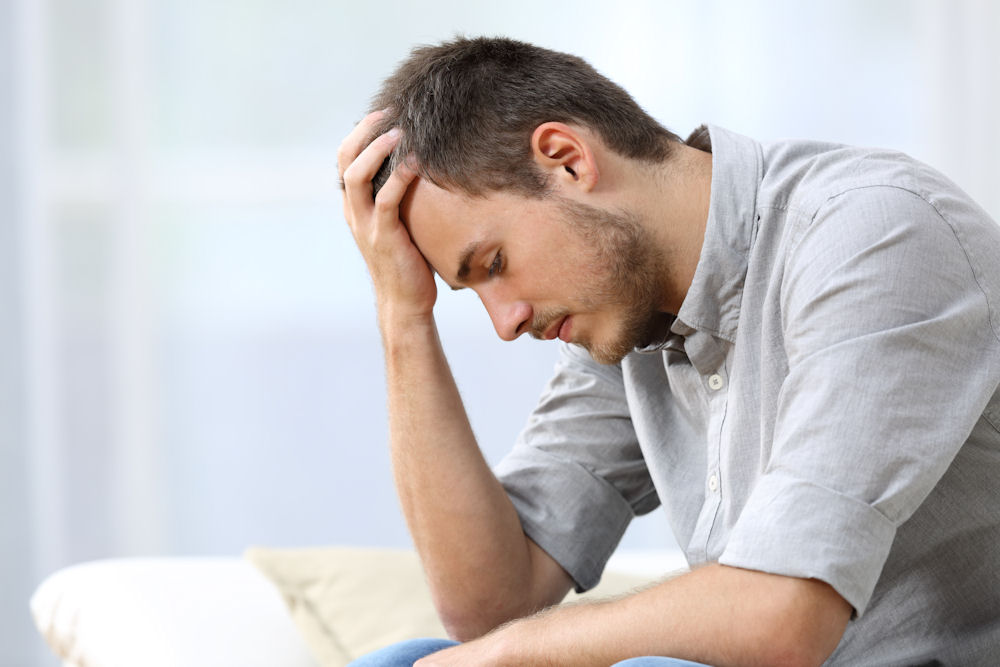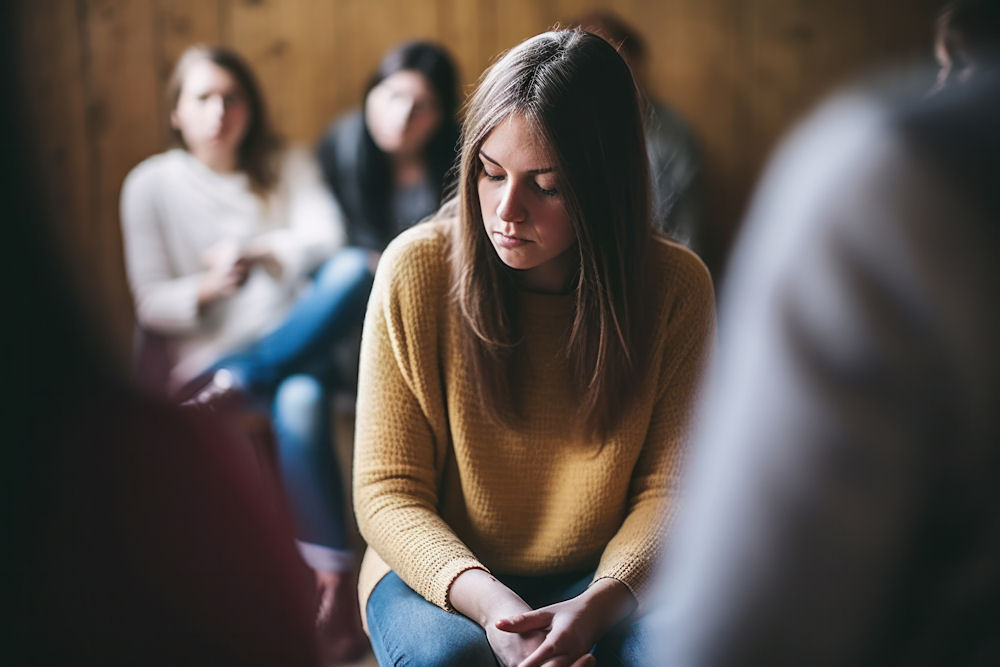Anxiety is a common mental health disorder that can manifest in a variety of ways. It’s important to understand your anxiety triggers and how to address them in order to live a healthy and fulfilling life. This article will provide you with information on what anxiety is, the signs and symptoms, common triggers, and how to cope with them.
Laguna Shores Recovery in Dana Point, California offers treatment programs to help you manage your anxiety and live a life free from its limitations.
What is Anxiety?
Anxiety disorders are characterized by excessive worry and fear that can interfere with daily life. The Diagnostic and Statistical Manual of Mental Disorders, Fifth Edition (DSM-5) outlines several types of anxiety disorders, each with its own set of criteria. Some common types of anxiety include generalized anxiety disorder (GAD), panic disorder, social anxiety disorder, obsessive-compulsive disorder (OCD), and phobias.
What are Anxiety Triggers?
A trigger refers to a stimulus that the brain has associated with danger. For instance, the sight of a car accident may serve as an anxiety trigger for someone who has survived a similar incident, as it evokes memories of the traumatic experience. Conversely, another individual might feel anxious during conflicts with a partner, as such disputes may jeopardize their relationship or remind them of negative communication patterns from their childhood. Triggers are highly individualized, shaped by personal experiences and traumas; some are readily identifiable, while others may be more subtle.

When faced with an anxiety trigger—be it a person, location, object, thought, emotion, or a combination thereof—one’s body responds as though there is an imminent threat. This reaction can manifest in feelings of worry and fear, accompanied by physical symptoms such as muscle tension, elevated heart rate, shortness of breath, and other distressing sensations.
It is normal for individuals to experience anxiety occasionally. However, if anxiety becomes overwhelming and disrupts daily life, it may indicate the presence of an anxiety disorder. These disorders are prevalent, affecting approximately 31% of adults. There are many things that can trigger anxiety.
Common Triggers for Anxiety Attacks
There is a considerable likelihood that you are already aware of one or two of your anxiety triggers. However, it is important to note that some anxiety triggers may not be as easily recognizable, and you might be unaware that they are exacerbating your anxiety. To assist you in pinpointing the origins of your anxiety attacks, the following are common triggers:
If you notice an increase in anxiety following your morning coffee, it may be advisable to reduce your intake or opt for decaffeinated options. Caffeine acts as a stimulant and can replicate symptoms of anxiety, leading to feelings of nervousness or restlessness when consumed in excessive quantities. Individuals with generalized anxiety disorder may find that even minimal amounts of caffeine can intensify their anxiety. If you encounter symptoms such as nervousness, elevated heart rate, or irritability after consuming caffeine, consider lowering your consumption.
Engaging in negative thinking can serve as a catalyst for anxiety, adversely affecting your mood and hindering your ability to manage stressors effectively. Negative self-talk may contribute to the development or persistence of anxiety by reinforcing an individual’s fears or concerns.
Cognitive Behavioral Therapy (CBT) is a well-established method for addressing various mental health issues, including anxiety disorders and depression. Through CBT, a therapist will assist you in recognizing negative thoughts and beliefs, aiming to replace them with more positive alternatives. Cultivating a positive self-dialogue while attending to your physical, mental, and emotional well-being may help alleviate anxiety levels.
It is widely acknowledged that stress can be a significant contributor to anxiety. Stressful life events, such as job loss, financial difficulties, relationship challenges, or major life changes, can be significant triggers for anxiety Additionally, everyday stressors, such as traffic congestion or household chores, can also trigger anxiety.
These events create uncertainty and feelings of helplessness, which can lead to overthinking and worry. Anxiety may manifest through symptoms like restlessness, difficulty concentrating, or physical tension. Identifying this trigger involves noticing heightened anxiety during or after stressful situations and recognizing patterns of worry tied to specific events.
While it is normal to experience anxiety during stressful events or transitions, it should not dominate your life. If symptoms of anxiety have escalated as a result of stress, it may be beneficial to explore methods for relaxation and mental tranquility. Additionally, consulting with professionals may provide valuable assistance in addressing the underlying issues contributing to stress.
Receiving a distressing diagnosis or experiencing troubling physical symptoms can lead to heightened anxiety for anyone. For individuals with an anxiety disorder, health-related issues may exacerbate their condition. They may find themselves preoccupied with the outcomes of medical tests or fearing the implications of a recent diagnosis. In some cases, health worries can significantly disrupt a person’s daily life, and create a feedback loop of distress. To identify medical conditions as a trigger, it’s important to observe if anxiety increases during illness or when experiencing specific physical symptoms, and consult a healthcare provider for further evaluation.
Alcohol and drugs can worsen anxiety by altering brain chemistry and increasing feelings of unease or panic. Substances like stimulants or depressants can interfere with the body’s ability to regulate emotions, leading to heightened anxiety during use or withdrawal. Identifying substance abuse as a trigger involves reflecting on whether anxiety intensifies after drinking or using drugs and seeking professional help to address substance-related issues.
Anxiety disorders often run in families due to genetic predisposition. Individuals with a family history of anxiety may be more susceptible to developing anxiety themselves. While genetics alone may not cause anxiety, they can make a person more sensitive to environmental triggers. Identifying genetics as a factor involves understanding family history and being mindful of personal patterns of anxiety.
The surrounding environment can have a profound effect on your overall well-being. Common environmental stressors include physical disarray, such as a cluttered living space, excessive workloads, or employment in high-pressure roles. Environmental factors, such as caffeine consumption, lack of sleep, or the use of certain medications, can trigger or worsen anxiety symptoms. Caffeine, for instance, stimulates the nervous system, leading to jitteriness and increased heart rate, which can mimic anxiety.
Sleep deprivation affects emotional regulation, making it harder to manage stress. To identify environmental factors as triggers, keep a journal of lifestyle habits and note how they correlate with anxiety symptoms, adjusting habits as needed to reduce triggers.
Many individuals feel anxious prior to public speaking or attending social gatherings. If you are anticipating a social event and are experiencing anxiety symptoms, you may find that your discomfort diminishes once you acclimate to the environment or after the event concludes.
However, approximately 7% of the population suffers from social anxiety disorder, which manifests intensely during routine interactions, and can significantly impact a person’s life, including work or school.
Certain medications have the potential to induce or exacerbate anxiety symptoms. These may include specific asthma treatments, prescription stimulants, thyroid medications, and decongestants. If you believe that a prescribed or over-the-counter medication is contributing to your anxiety, it is essential to consult your healthcare provider. They may suggest an alternative medication, adjust the dosage, or offer coping strategies tailored to your situation.
Persistent worrying can disrupt your ability to achieve the recommended eight hours of sleep. Insufficient sleep can exacerbate daily stressors and intensify anxiety symptoms, creating a more significant challenge in obtaining restful sleep. This can result in a detrimental cycle of anxiety and insomnia. It is crucial to consult a healthcare professional or therapist if you are experiencing difficulties with sleep.
Disagreements with a partner, disputes with colleagues, or general conflict can induce anxiety or worsen existing symptoms. If you frequently feel overwhelmed by conflict, it may be beneficial to acquire conflict resolution skills. A counselor can also provide guidance on effective coping strategies for managing intense emotions that arise from conflict, thereby reducing feelings of anxiety.
A diet rich in essential nutrients is vital for both physical and mental health. Implementing even minor dietary adjustments can significantly enhance your mental well-being, such as maintaining regular meal times, consuming a balanced and nutritious diet, and engaging in physical activity.
Individuals often experience anxiety when confronted with reminders of distressing memories or traumatic incidents from their past. The specific triggers that elicit such responses can differ significantly among individuals, reflecting the uniqueness of each person’s experiences. Various stimuli may evoke negative emotions. Additionally, certain personal traumas can evolve into conditions such as post-traumatic stress disorder (PTSD) or phobias.

How to Identify Your Anxiety Triggers?
The first step to managing your anxiety is to identify what triggers your symptoms. Here are some tips:
- Keep a journal: Track your thoughts, feelings, physical symptoms, and situations that seem to trigger your anxiety.
- Pay attention to your body: Notice physical sensations like rapid heart rate or sweating that may occur in response to certain situations.
- Consider your environment: Are there certain places or situations that make your anxiety worse?
- Think about your thoughts: What kinds of thoughts are you having when you feel anxious? Are they realistic?
If you suspect you may have social anxiety disorder, it’s important to recognize that effective treatments are available, including therapy, medication, or a combination of both.
Am I Just Worrying Or Is It Anxiety?
Anxiety can manifest itself in a variety of ways. The signs and symptoms of anxiety can be categorized into physical, emotional, cognitive, and behavioral:
- Physical symptoms: Rapid heart rate, shortness of breath, sweating, dizziness, nausea, muscle tension, fatigue, headaches, sleep problems
- Emotional symptoms: Feeling overwhelmed, fear, irritability, restlessness, nervousness, a sense of impending doom
- Cognitive symptoms: Difficulty concentrating, racing thoughts, intrusive thoughts, forgetfulness, negative self-talk
- Behavioral symptoms: Avoiding situations that trigger anxiety, withdrawing from social activities, restlessness, difficulty falling asleep or staying asleep, nail-biting, fidgeting
Everyone experiences worry and anxiety from time to time. However, when worry and anxiety become excessive and start to interfere with your daily life, it may be a sign of an anxiety disorder. Here are some signs that your anxiety may be a cause for concern:
- Your anxiety is causing you significant distress or impairment in your daily life.
- Your anxiety is persistent and doesn’t go away.
- You are avoiding situations or activities because of your anxiety.
- Your anxiety is causing you to have difficulty concentrating or making decisions.
If you are experiencing any of these signs, it’s important to seek professional help. A mental health professional can help you diagnose your anxiety disorder and develop a treatment plan.
Tips for Preventing and Managing Anxiety Attacks
Once you’ve identified your anxiety triggers, you can start to develop coping mechanisms to manage them. Whether you face an unexpected trigger or manage daily anxiety, here are several recommendations to assist you in feeling more comfortable.
- Relaxation techniques: Practice relaxation techniques such as deep breathing, progressive muscle relaxation, and meditation.
- Cognitive-behavioral therapy (CBT): CBT is a type of therapy that can help you identify and change negative thought patterns that contribute to anxiety.
- Exposure therapy: Exposure therapy involves gradually exposing yourself to the things that trigger your anxiety in a safe and controlled environment.
- Lifestyle changes: Getting enough sleep, eating a healthy diet, and exercising regularly can all help to improve your overall well-being and reduce anxiety symptoms.
- Mindfulness: Mindfulness practices can help you focus on the present moment and let go of worries about the future or the past.
Here are some other tips to follow:
- Engage in at least 30 minutes of physical activity each day to alleviate stress.
- Identify a secure and tranquil environment to help you regain composure.
- Utilize deep breathing exercises and mindfulness practices to enhance your focus on the present moment.
- Establish and adhere to a consistent daily schedule to reduce feelings of uncertainty.
- Limit your consumption of caffeine.
- Ensure you obtain sufficient rest each night.
- Maintain a nutritious and well-balanced diet.
- Encourage positive self-dialogue and practice self-kindness.
- Allow yourself moments of laughter.
- Concentrate on aspects within your control and release those that are not.
- Reach out to a friend, family member, or therapist when feeling overwhelmed.
- Collaborate with a counselor to acquire effective coping mechanisms and address any underlying issues.
Treatment for Anxiety Disorders
At Laguna Shores Recovery in Dana Point, CA, we offer a comprehensive dual diagnosis program that treats anxiety disorders and substance use disorders (SUDs) concurrently. This integrated approach addresses both conditions simultaneously, recognizing the complex relationship between anxiety and substance misuse. Our goal is to help clients achieve lasting recovery by focusing on the root causes of their challenges and providing tailored, evidence-based care.

For individuals struggling with anxiety, medication can play a vital role in managing symptoms. Our experienced medical team carefully evaluates each client’s needs and may prescribe antidepressants, anti-anxiety medications, or other supportive treatments as part of a personalized plan. Our medication management program helps monitor how the medication works and enables us to adjust the dose based on the patient. By stabilizing anxiety symptoms, clients can better engage in the therapeutic process and build coping skills for long-term recovery.
Therapy is at the heart of our treatment approach. We offer evidence-based therapy such as cognitive behavioral therapy (CBT), which helps clients identify and reframe negative thought patterns contributing to anxiety, and exposure therapy, which gradually desensitizes individuals to their fears in a safe and controlled environment. Our therapists also provide trauma-focused care for those whose anxiety stems from past experiences, ensuring a compassionate and supportive healing journey.
At Laguna Shores, we understand the importance of a holistic approach to anxiety and addiction recovery. Our treatment programs include stress-reduction techniques such as mindfulness practices, yoga, and meditation, which empower clients to manage anxiety naturally. We also emphasize lifestyle factors, including proper nutrition, regular exercise, and sleep hygiene, to support overall mental and physical well-being.
Support groups are a cornerstone of recovery at Laguna Shores. These groups provide a safe and welcoming space for clients to share their experiences, gain insights, and develop meaningful connections with others facing similar challenges. Peer support fosters a sense of community and reduces feelings of isolation, both of which are essential for recovery.

Find Anxiety Relief at Laguna Shores Recovery
Contact our team at Laguna Shores Recovery to start treatment for anxiety co-occurring with alcohol or drug addiction. Our residential rehab in Orange County, CA, provides a relaxing retreat for those with anxiety and addiction to recover. If you have questions regarding our program please reach out to admissions!

 Matthew Beck B.A, M.A, LMFT
Matthew Beck B.A, M.A, LMFT 


